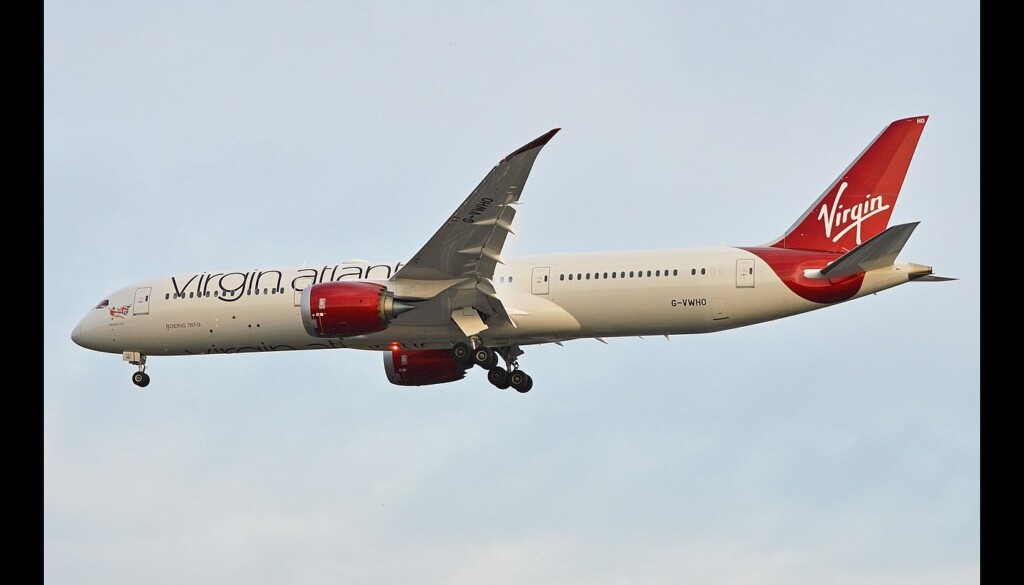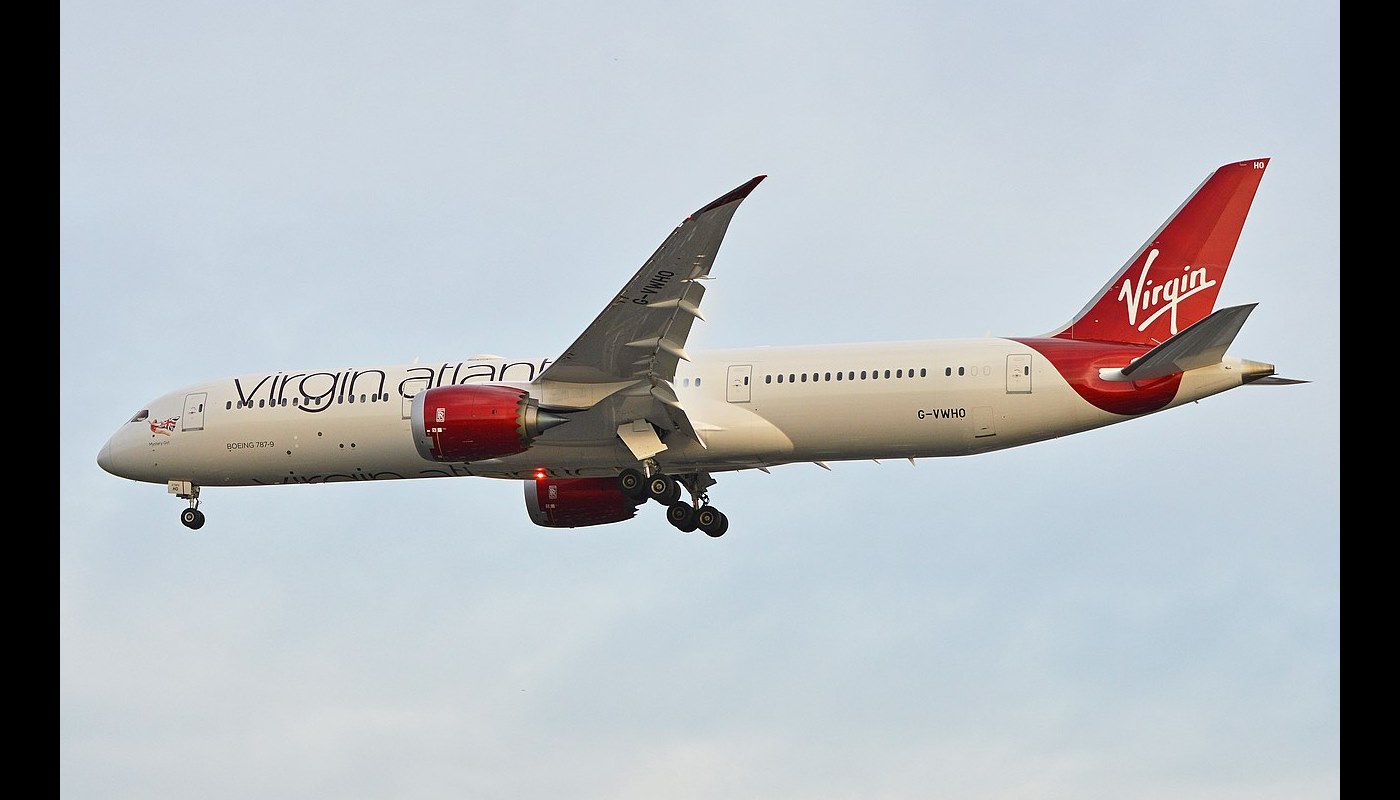
It’s one thing to power green aviation in Europe where flights take 30 minutes to 3 hours; it’s another thing to send a jetliner across the Atlantic.
But that’s exactly what Virgin Atlantic was able to do for the first time in history, when a Boeing 787 flew from London’s Heathrow to JFK using sustainable aviation fuels (SAF) manufactured from cooking oil, waste crops, and waste food.
This kind of fuel is reckoned as emitting 50% to 70% fewer emissions than jet fuel, and since the whole of world aviation accounts for just 2.8% of global emissions, a 50% to 70% theoretical reduction would eliminate it as a priority in the fight against climate change.
Virgin’s 787 was filled up with 50 tonnes of SAF. Two types were used, with 88% derived from waste fats and the rest from waste products of corn farming in the US.
UK Transport Secretary Mark Harper was one of those on board the flight, and upon landing, declared, “history has been made.” The flight was not open to the paying public, but there were passengers.
Sir Richard Branson, the company’s founder, said he knew it was just a first step.
“But you have to start somewhere,” he told the BBC. “And if we didn’t prove it can be done, you would never, ever get sustainable aviation fuel.”
MORE SUSTAINABLE JET FUELS: First Flight of Regional Jet-Powered by Hydrogen Fuel Cells–40-Seater is Largest Ever to Fly
Heavy machinery has difficulties in becoming green. Planes, trains, and heavy construction equipment need massive doses of portable power; the kind generated through diesel or kerosine. It needs to be not only portable and combustible, but also light enough not to disrupt weight restrictions.
OTHER AVIATION EVOLUTION: Hydrogen-Powered Swiss Jet May Herald Return of Supersonic Flight–And Cut Travel Time By 75%
For this reason, passenger jets are at the moment limited to SAF or hydrogen. In the spring of this year, a startup called ZeroAvia flew the largest aircraft (a 19-seater) ever powered by hydrogen which they hope to make available soon to decarbonize short national flights in Europe.
At the moment, SAF is used in just 0.1% of all fueling for passenger flights in the UK, where Virgin is headquartered.
The UK government has set plans to require 10% SAF in all airline fuels by 2030.
WATCH the historic moment below…
SHARE This News With Climate Worryers You Know…




















